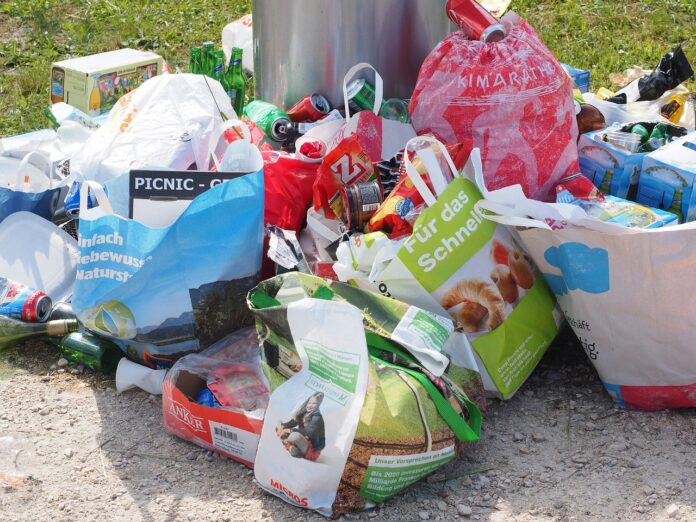Are you aware of global waste produced would be up 70% in 2050? The shocking figure draw attention to an issue we probably do take for granted in our everyday lives.
The waste crisis is not about rubbish piling for our environment, economy and health. And as we produce more waste now than ever, bad waste management forms a key part of the problem. The costs of disposal decisions are immediate from overflowing landfills to pollution and health risks.
In this blog, we will examine how poor waste disposal habits contribute to environmental degradation, economic burdens and public health issues. Let’s get started.
Understanding the Global Waste Crisis
When we look at waste generation, there a big difference between countries. For example, high-income countries produce far more waste per person than low income-countries. In the UK each person generates about half a ton of waste annually while in some developing regions, it’s significantly lower. The type of waste we produce also varies. A large portion consists of plastics which take hundreds of years to decompose.
Food waste is another reason with millions of tons tossed annually. If we keep going the way we are then we can expect to waste even more. This will put more pressure on our planet and resources. This emphasizes the immediate requirement of better waste management globally.
Impacts of Improper Waste Disposal Land Pollution and Ecosystem Destruction
Improper waste deposition often results in the expansion of landfills which may worsen surrounding lands. This damages not only the environment and wildlife. When trash decomposes in dump sites, it may poison soil putting it in poor condition to use for agriculture and affecting the food we grow.
Water Pollution and Marine Ecosystems
Plastic rubble in our oceans is a problem that continues to expand. Millions of tons of plastic find their way into the sea every year causing harm to marine life and disrupting delicate food chains. Fish and other animals may ingest plastic which can be risky to their health. Microplastics are fragments of larger plastic items that have worn down into tiny particles. It’s the biggest problem spreading throughout the ocean and even sensitive to the smallest of organisms.
Air Pollution and Climate Change
Dump sites are a major source of greenhouse gas emissions, which cause climate change. Methane is a dangerous gas that traps heat in the atmosphere when waste decomposes. Waste can also create air pollutants that are damaging to our health. The implications of climate change demonstrate the immediate requirement for better waste management to secure the future of our planet for generations to come.
Health Implications of Poor Waste Management Direct Health Hazards
Mismanagement of waste may also result in the transmission of diseases. When garbage isn’t taken care of properly, it leads to an environment in which germs and pests flourish posing a serious health risk. Chemical exposures are dangerous and cause serious health problems.
Indirect Health Consequences
When waste management is not carried out properly, food and water sources can become contaminated and unsafe to consume. People who live near disposal sites have experienced long-term health problems like respiratory and other chronic ailments. Also, being exposed to poor environments can have mental health effects further stressing and making anxious the party that is exposed.
Economic Costs of the Waste Crisis Direct Financial Burdens
Municipalities spend a huge amount on waste collection, processing and disposal. Restoring contaminated lands can also be extremely expensive and divert public funds. Health costs are also rising due to diseases associated with bad waste management.
Hidden Economic Impacts
Polluted areas can have low travel and tourism income, as people are likely to travel to areas with a visible waste issue. Nearby property values decrease from waste sites, negatively impacting local homeowners and businesses. As a society we face resource reduction operating under the law of ‘use and destroy’ making it difficult for our economy to endure over time.
Sustainable Waste Management Solutions Individual Actions for Better Waste Management
One effective way to manage waste is to implement the 5Rs. By choosing to refuse single-use items and reducing what we buy, we can significantly reduce waste.
- Refuse
- Reduce
- Reuse
- Repurpose
- Recycle
Composting is also a smart solution to food waste. Kitchen waste can be converted to valuable soil through simple actions, such as a compost bin. Properly disposing of hazardous waste and electronic waste is also important to be accomplished through regulated recycling programs.
Incorporating zero-waste lifestyle principles for those who want to make a larger change can make a difference. Act that can be done, such as bringing reusable bags, containers and utensils to reduce trash.
Community and Policy-Level Solutions
- Extended producer responsibility programs make companies responsible for projects recycling, encouraging companies to start developing more sustainable options.
- They promote deeper, value-added re-use and extending useful life, to diminish the requirement for extraction of new raw materials.
- Waste management technologies are still also evolving to assist communities in managing waste in a more effective manner.
- When a best practice is identified it can be inspirational because best practices from other places often help trigger solutions that are contextually adapted.
FAQs
What is the largest cause of the world’s waste problems?
Single-use plastics, food wastage, and the incorrect disposal of toxic chemicals are the three major contributors.
What is the effect of incorrect disposal of waste on the climate?
And, it results in greenhouse gas emissions, primarily from landfills and incineration, which fuel climate change.
What countries generate the most waste per capita?
The most garbage per person is produced in the high-income countries such as US, Canada, and some European states.
Which are the things that one should never throw in regular trash?
Hazardous and electronic waste and certain plastics should be discarded separately.
What is the decomposition period of various forms of waste?
Under good conditions, plastic could take hundreds of years, food waste a few weeks, paper about 2-5 months.
What are the best ways to minimize household waste?
Practicing the 5Rs, composting, buying in bulk and selecting reusable products are successful approaches.
What should I do with dead electronics?
Bring e-waste to official recycling depots or get involved with local e-waste collection days.
Final Thoughts
The improper disposal is the biggest for our environment, heath and economy. The implications are significant from land and water contamination to increased health costs. We need to accept our share of the blame for this crisis and campaign for systemic change in how waste is managed. Take step forward to see an impact. Each little step adds up to a cleaner and better planet.







